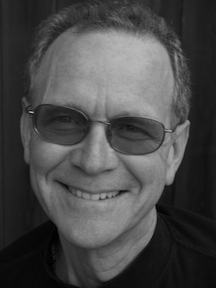By Caroline Hamp
Inspiration from Phi Beta Kappa leads to the desire to inspire current undergraduate students, confides Professor Tyler Burge.
Burge was inducted into Phi Beta Kappa as an undergraduate at Wesleyan University, and then went on to earn his Ph.D. at Princeton University. In 1971, he began teaching at University of California Los Angeles.
He is most well known for his work in philosophy–especially his published works on the philosophy of the mind–but his studies encompass a broad range of discourses, from psychology to history to biology.
Over the years, he has published four books and a multitude of articles. He has held prestigious positions, including the President of the Pacific Division of the American Philosophical Association, and has been elected as a Fellow of both the British Academy and the American Academy of Arts and Sciences. Burge’s awards include, but are not limited to, a Guggenheim Fellowship and the Jean Nicod Prize.
With his impressive academic background, it is no wonder that Phi Beta Kappa asked Burge to participate in their Visiting Scholars Program. Each year, the program sends multiple distinguished scholars to schools across the nation in hopes of promoting dialogue between the Scholars and university faculty and students. In keeping with the program, Burge travelled to multiple universities, and still has a few more stops on his tour, which continues through the first of May.
In early February, he visited Washington and Lee, a small liberal arts university in Lexington, Virginia. The range of universities selected for the program is astonishing; early in the tour, Burge visited Clemson University, a mid-sized state school, which he found to be more akin to his home university in Los Angeles. However, he appreciated the exposure to new and different types of universities.
“These trips have opened my eyes to small schools that are unlike UCLA, but they have great programs… I’ve had the opportunity to connect with many of the people I’ve met,” explains Burge.
At Washington and Lee, like many of the other host schools, Burge gave lectures, enjoyed luncheons, and engaged in classroom discussions. Although his lectures touched on the topics found in his books, he expanded the discussions to incorporate topics currently taking hold of the scientific world. Specifically, he advocated for more respect and resources in the field of psychology.
His advocacy speeches reached thousands of students and faculty thanks to the tour, which lasted over one year and included nine universities. For Burge, the high expectations of the tour were sometimes strenuous, but it was all worth it. He is impressed and thankful for the opportunities higher education has given students.
“These students are exposed to so much. It’s quite different from anything I knew existed. There is so much to learn, and it has opened up a new world,” Burge says of higher education.
Burge hopes to continue to open up new worlds of thought. With the help of the Phi Beta Kappa Visiting Scholars Program, he has been able to plant new seeds in the minds of undergraduate students. His discussions will hopefully lead to new thought and ideas, but primarily, action. He wants bright, up-and-coming students to join the fight for higher education. He wants them to have the correct vocabulary and incentives as they continue in their studies and research.
“I was inspired as an undergraduate, and I hope to inspire one or two students during the tour,” states a resolute Burge.
Caroline Hamp is a junior at Washington and Lee University, majoring in English and Religion. In addition to The Key Reporter, she also writes for her university newspaper, the Ring-Tum Phi. Washington and Lee University is home to the Gamma of Virginia Chapter of Phi Beta Kappa.




